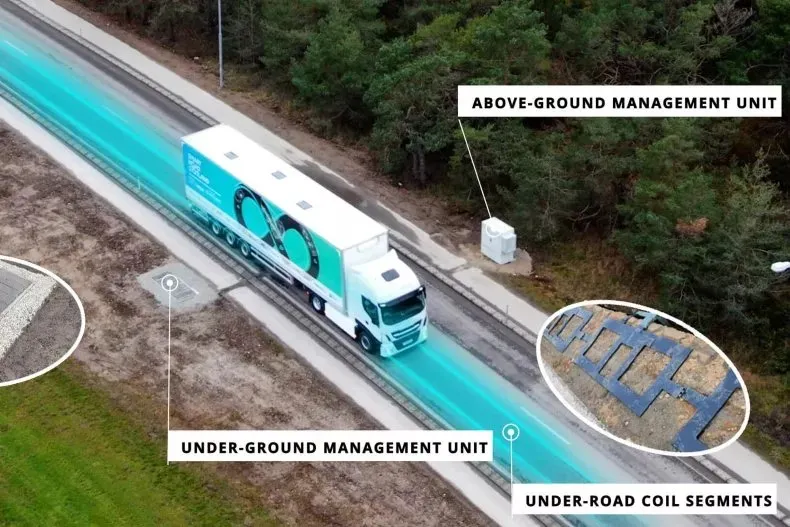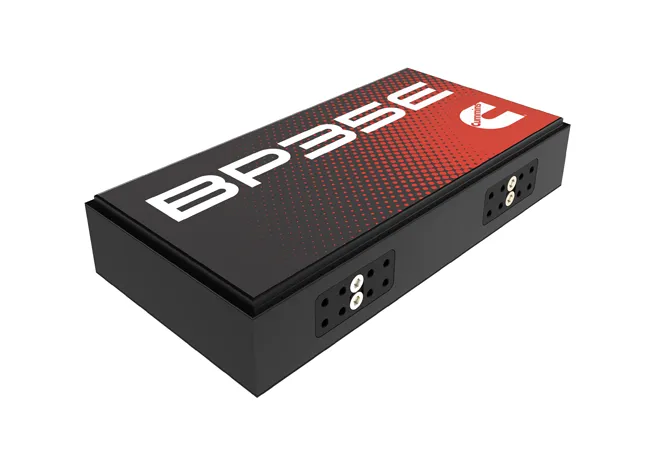
Electreon reports that its wireless EV charging road in Detroit – the first such public “station” in the US - has been completed as a testbed.
The technology enables EVs to charge while driving, using chargers that are embedded in the pavement. Detroit’s 14th Street is now equipped with inductive-charging coils between Marantette Street and Dalzelle Street that will charge vehicles equipped with Electreon receivers as they drive along.
The road will be used to test and perfect the wireless-charging technology ahead of making it available to the public in the next few years.
Extensive testing of the inductive charging technology will start early next year using a Ford E-Transit electric commercial van provided by vehicle manufacturer Ford and equipped with an Electreon receiver. Staff will test the efficiency and operation of the vehicle and study potential long-term public transportation opportunities.
Electreon’s wireless charging technology is based on inductive coupling between copper coils installed below the road surface and receivers installed on electric vehicles. When a vehicle with a receiver nears the in-road charging segments, the road transfers electricity wirelessly through a magnetic field. This electricity is then transferred as energy to the vehicle’s battery.
These charging segments can transfer wireless electricity to the receiver either when the vehicle is parked (static charging) or is driving (dynamic charging).
The electric road is safe for drivers, pedestrians and wildlife because each coil in the road is activated only when a vehicle with an approved receiver passes over it. This ensures that energy transfer is controlled and provided only to vehicles that require it.
Michigan’s department of transportation and Electreon have entered into a five-year commitment to develop the electric road system by piloting the technology on the US state’s roads. Also next year, the DoT will seek bids to rebuild part of US-12, called Michigan Avenue, which will see additional inductive charging installed. Electreon has also installed two static inductive charging stations in front of Michigan Central Station, which will be able to charge Electreon-equipped vehicles while they are parked.
“Michigan has always been at the forefront of innovation in mobility and that forward-thinking is on display with the latest advances in inductive charging from Electreon, the first deployment of this electric vehicle charging technology in the United States,” said Justine Johnson, chief mobility officer of the Office of Future Mobility and Electrification.
“This latest milestone supports the goals of the MI Future Mobility Plan to grow Michigan’s mobility leadership and proves that companies like Electreon can test and deploy the newest innovations right here in Michigan.”
Since the OFME was formed in 2020, it has facilitated more than $485m in mobility-focused revenue and initiated $163.5m in follow-on funding for local companies. It works across state government, academia and private industry to develop Michigan’s mobility ecosystem, including the start-up and scale up of emerging technologies and businesses.
For instance, OFME launched the first state strategy for future mobility, the MI Future Mobility Plan, and custom-built the first roads in the US for driverless vehicles.
Electreon develops and provides wireless charging solutions for EVs for shared public and commercial fleet operators. The company’s proprietary inductive technology charges EVs quickly and safely both while driving and parked. Electreon collaborates with cities and fleet operators on a sale business model and on a Charging as a Service (CaaS) business model, that enables cost-effective electrification of public, commercial, and autonomous fleets for smooth and continuous operation.
Electreon operates 18 projects across eight countries, together with more than 100 partners.






